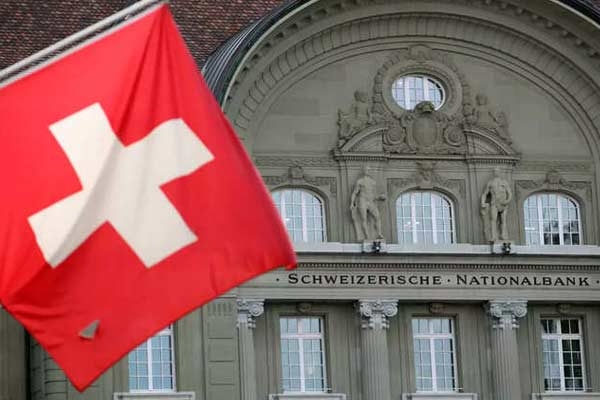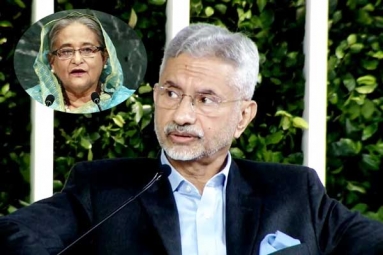
(Image source from: The Economic Times)
Last month a report unveiled that unaccounted wealth outside the country held by Indians was in the range of USD 216.48 billion to USD 490 billion over various periods between 1980 and 2010.
India's fight against this suspected black money stashed abroad will get a major uplift this September in the form of the first set of comprehensive financial information about all Indians having Swiss bank accounts, as well as those closed since last year.
The information that Switzerland would share under the Automatic Exchange of Information (AEOI) framework with Indian tax authorities would comprise account numbers, credit balance and all kinds of financial income for each Indian client of all Swiss financial institutions.
According to Switzerland's Federal Department of Finance (FDF), the first set in September would be followed by further despatches on yearly basis.
This would be in addition to details already being shared by Switzerland with India for about 100 Indian entities, including enterprises and individuals, on submission of prima facie evidence of their financial errors, under a bilateral pact for administrative assistance on tax matters.
V Muraleedhran, Minister of State for External Affairs, also said in a written reply to a Lok Sabha question on Wednesday that India will start receiving information on an automatic basis from September regarding the financial accounts Indian residents held in Switzerland.
Besides, the India-Switzerland tax treaty facilitates receipt of the information on a request basis for cases under investigation, he said.
"The information received on request or on automatic basis may include information about persons allegedly involved in corruption," the minister said.
When asked whether the government would reveal those names, the minister, however, said the "use and disclosure of the information" is governed by confidentiality provisions.
Explaining the AEOI with India, which has come into force from January 1, 2018, the FDF said Switzerland, as a global wealth management hub, is committed to contributing to the integrity of the international financial system and to a level playing field.
"Switzerland applies the international transparency standards and therefore actively supports India in its fight against tax fraud and evasion," it said.
Under the AEOI framework, detailed financial information on all Indian residents that have an account managed by a Swiss financial institution in the year 2018 will be provided in September 2019 for the first time to the Indian tax authorities and on a yearly basis thenceforth.
It said the information would include accounts that were out of use during 2018.
It is feared scores od Indians might have closed their accounts after a worldwide crackdown on black money led to Switzerland buckling under insistence to open its banking sector for the investigation to clear the long-held perception of Swiss banks being a safe haven for undisclosed funds.
However, the AEOI would only be related to accounts that are officially in the name of Indian residents and they might include those used for business and some other authentic purposes.
In an explanatory dossier on AEOI, the FDF said if a taxpayer in country A (India) has a bank account in Switzerland, the bank would disclose the financial account data to the Swiss authorities, which would automatically forward the information to the tax authorities in the country A (India).
The Indian authority would, therefore, be able to analyze the foreign financial account data and tax necessary action, if required, against the taxpayer.
The information would be sorted into three broad categories of financial details, identification, and account.
The identity details would be - name, date of birth, address, and tax identification number, whereas account information would include the account number as also name and address of the financial institution.
The financial info would include interest income, dividends, and other financial revenue, receipts from certain insurance policies, credit balances and returns from the sale of financial assets.
Apart from India and Switzerland, a number of other countries have as well signed the AEOI pacts as part of a worldwide crackdown on tax evasion.
For the first time in September 2018, financial account information was successfully exchanged by Switzerland with 36 jurisdictions, while India would figure in the next set of such countries this year.
After a months-long process, Switzerland made an agreement with India to begin the automatic information exchange with India, including framing of new laws and their passage in their Parliament and reappraisal of the needed legal framework in India on data protection and confidentiality.
In its recent status report on the AEOI execution, Switzerland's State Secretariat for International Finance (SIF) said India shared information with 58 partner countries during 2018 and it has "reasonable" data security laws and confidentiality. It found no "well-founded negative feedback" from other countries, companies or individuals to indicate that India has any relevant defects in these laws.
The Secretariat for International Finance also found India to have a good network of more than 100 partner countries with common assistance treaties. It also did not light upon any documented findings of earnest human rights violations because of taxation or data exchange.
Also, the Swiss Embassy in Delhi submitted that matters like the AEOI framework and the cooperation from Switzerland were being discussed in a positive manner in India in connection with the country's combat against tax evasion and it was being seen as an important tool to tackle the issue of black money.
By Sowmya Sangam


















